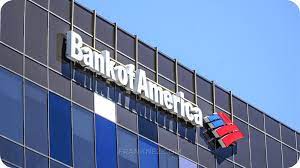Big banks such as Bank of America (NYSE:BAC) and Wells Fargo (NYSE:WFC) are going to close several more branches.
In Philadelphia, Wells Fargo has closed 17% of its local bank branches since 2020.
PNC is not far behind, shuttering 15% of its branches in the Philadelphia area, per the Philadelphia Business Journal.
Bank of America has also followed suit, closing 5% of its physical locations in the region, as well.
Big banks are closing branches in New Jersey, Maryland, Ohio, Washington, D.C., Illinois, and Michigan, as well as out west in Nevada, California, and Arizona, per The Street.
According to the U.S. Federal Deposit Insurance Bureau (FDIC), large commercial U.S. banking locations have fallen from 8,000 in 2000 to 4,236 by 2021 and 4,194 by 2022.
“US banks closed 149 branches and opened 49 in March, resulting in a total of 78,588 active branches,” S&P Global Market Intelligence data reported on April 28, 2023.

If the trend of current bank branch closings continues there may be no bank branches left in 10 years.
Self Financial estimates the number of U.S. bank branches will fall from about 60,000 in 2023 to approximately 15,660 in 2030 – and continue falling until there are no bank branches left by 2034.
Bank executives say consumer attitudes have changed with the times.
At Wells Fargo, the banking giant is reporting a plunge in face-to-face teller transactions.
“Our branch network will continue to be the key to the business, but our customers expect us to provide them with increasingly digitized and seamless banking experiences across all channels,” President and CEO Charles Scharf noted on a recent quarterly earnings call.
“The banking industry is withdrawing from the most vulnerable communities in the country at an astounding clip despite the resumption of normal economic activity in mid-2021,” said Jason Richardson, director of research at the National Community Restoration Coalition.
“After using the initial lockdown phase of the pandemic to double the rate of branch closures, banks maintained that alarming pace in the past year.”
The fact is that more consumers are using competitive online banking platforms such as Ally Bank and Sofi, which provide high yield savings programs.
The attorneys general cite the sudden account closure of a religious liberty organization as an example of the bank’s discriminatory practices.
In May 2022, Chase abruptly closed the National Committee for Religious Freedom’s (NCRF) checking account.
NCRF is a ‘nonpartisan, faith-based nonprofit organization dedicated to defending the right of everyone in America to live one’s faith freely.’
A JPMorgan representative told The Journal: “We have never and would never exit a client relationship due to their political or religious affiliation.”
























